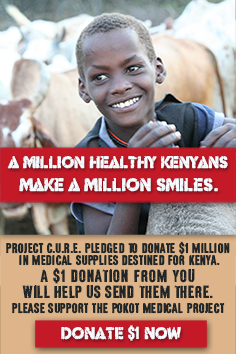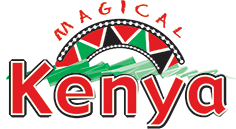
Project Introduction:

Problem Statement:
Areas surrounding Maasailand have been noted to have the highest level of poverty and prevelance in HIV. Because infants carry many of their mothers’ antibodies through their first year of life, a number of newborns with infected mothers may give a ‘false positive’ and never actually develop the disease themselves. In fact, a full 80% of babies who test positive at birth will eventually be found not to have the virus. Tragically these children are often abandoned anyway, on the mistaken assumption that they are certain to develop and eventually succumb to AIDS.
Children who are affected by HIV/AIDS have a lower chance of completing basic and secondary education. Without education and skills training, children orphaned and made vulnerable by HIV/AIDS are more likely to fall deeper into the cycle of poverty and engage in high-risk behaviour, which perpetuates the cycle of HIV transmission. Ultimately, Kenya being affected might find it harder to overcome national poverty and become an effective member of the international economy. This often begins when children realize that their parent has AIDS and is likely to die. They begin to fear for their future, wonder who will care for them, and worry about how they will be able to stay in school. Children are often pulled out of school to care for an ailing family member, or because meagre household income is now spent on the sick. School fees, notebooks, and pencils become unaffordable and children begin to struggle to provide care and replace lost adult labour and income.
Large numbers of orphaned children find themselves in homes that cannot afford to pay school expenses and drop out to work in the household, fields, or on the street. Young children with minimal education or employable skills can be found doing work such as herding, begging for money in the streets, bartending, selling food, and most often in the case of girls, becoming domestic workers (all this classified as child labour according to the Children’s Act of 2001). The desperation of these young children makes them more vulnerable to abuse and exploitation, ultimately making them more susceptible to contracting HIV/AIDS.At this stage, the quality of child-rearing is compromised, and many important lessons on life skills and self-sufficiency are not taught, mostly because the parent(s) is too ill to transfer the knowledge. After one parent dies, most  children continue to live with the surviving parent or a relative, but they often slide more deeply into poverty. For some, they find themselves the heads of households. A young adolescent may be responsible for many siblings, some of whom may be infants. Children who are the heads of households are in a difficult position not only because they must now support their siblings with little to no education and/or employable skills, but also because they most likely have limited resources. In many cases, most of the family’s possessions may have been sold to care for the sick.
children continue to live with the surviving parent or a relative, but they often slide more deeply into poverty. For some, they find themselves the heads of households. A young adolescent may be responsible for many siblings, some of whom may be infants. Children who are the heads of households are in a difficult position not only because they must now support their siblings with little to no education and/or employable skills, but also because they most likely have limited resources. In many cases, most of the family’s possessions may have been sold to care for the sick.
MOEF Project Purpose:
It’s on the basis of this that MOEF Project has taken its initiative to implement this project of supporting education for the MOEF in Mbirikani Group Ranch, Loitokitok District to redirect the plight of children by alleviating their disadvantage and ensuring the completion of their education. MOEF raises funding for their education programs and school fees, and for provision of uniforms, books and other school supplies.
MOEF sees to it that these children are cared for until a definite assessment of their HIV status can be made. Children who are eventually found not to have the virus are adopted or find other homes. Children who are found to be truly HIV+ are given the best nutritional, medical, psychological, academic, spiritual care available and live at village until they become self-reliant.
Mbirikani Group Ranch hosts one of the best clinics dealing with HIV and communicable deases in the area. Through their data we have established areas that needs urgent monitoring. Such areas includes; Mbirikani, Kimana, Namelok, Olbili, Oloitokitok.
 Project Management:
Project Management:
Maasai Orphans Education Fund is managed by a board of directors consisting of members of the Maasailand community. The project’s administrative work is performed by the program coordinator, who is appointed by the board. Funds to support MOEF are raised and provided through Friends of Africa International, a US-based 501(c)3 nonprofit organization with NGO status in Kenya.
Vision Statement:
Maasai Orphan Education Fund envisions a community that provides the means and opportunity for disadvantaged, vulnerable and orphaned children to become educated, healthy and prosperous in an environment that is free from deprivation, stigma and discrimination.
Mission Statement:
The MOEF Project Mission is to ensure that orphans and vulnerable children attain their full potential through holistic support at all stages of child development that will help them grow up to become fulfilled and responsible adults making a difference in their communities and beyond.
Overall Goal:
The overall goal of the MOEF Project is to improve quality of life and raise the standard of living by 80% for children in the Mbirikani Group Ranch and surrounding community by 2025
MOEF Project Programs:
To realize the above vision, mission and goals, the organization implements the following programs in its area of operation:
Education Support:
- Funding for school fees, supplies and uniforms
- Basic necessities such as food and shelter to ensure children can attend school
- Support for medical and psychological care
- Programs to empower self-reliance and self-confidence with interactive school programs
HIV/AIDS and Health/Nutrition program
- HIV/Aids awareness
- Facilitation of voluntary testing and counseling
- Community health training and awareness
- Training of community health workers and traditional birth attendants
- Supplementary feeding and deworming of children under five years old
Food security and economic empowerment program
- Improved animal husbandry
- Youth and women economic empowerment
- Extension education services
- Irrigation farming








